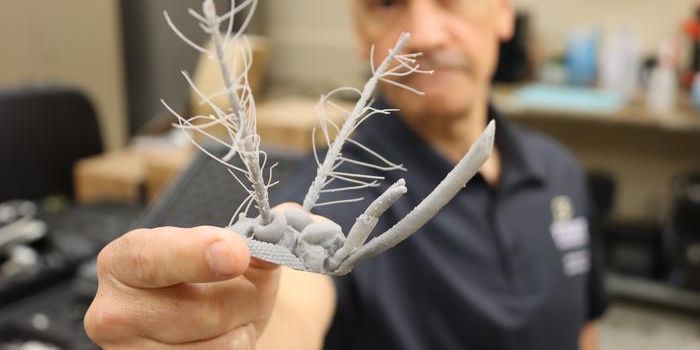A Robotic Cat Could Help People with Dementia
Dementia is a debilitating condition. Though not formally classified as a disease, it more appropriately refers to a collection of conditions such as reduced memory and cognition. While dementia is not just a natural result of getting older, there is a higher prevalence of it in older adults.
Dementia can also cause a range of comorbidities, such as depression and anxiety. Treatment for depression and anxiety can often include antidepressants and other pharmaceuticals that can have a range of side effects. However, evidence is mixed on whether antidepressants can help people with dementia struggling with mental health, usually because dementia causes significant changes to the brain. If someone did not have a pre-existing mental illness, these treatments may not work for them.
Researchers at Florida Atlantic University have developed an unexpected tool that could offer an alternative to medication: a robotic cat.
That’s right, a robotic cat. The research team successfully designed a machine that can very closely mimic the sounds and movements of a real cat. The goal was to develop the machine as a way to provide companionship to people with dementia and potentially improve mood.
The theoretical premise behind using a robotic cat is grounded in pet therapy, where certain animals (often dogs or cats) are used for therapeutic benefit. For example, pet therapy can be a helpful tool for people struggling with anxiety, those receiving long-term care, or children receiving complex or scary procedures. However, researchers noted that live animals come with higher responsibility and upkeep, something that people with dementia may not be able to handle. A robotic animal that can simulate many of the same things a real animal can do could offer a more manageable option.
Researchers followed 12 individuals with mild-moderate dementia who were given a robotic cat to interact with over the course of 12 days. Metrics, such as the Mini Mental State Examination (MMSE) were used to gauge overall mood and behavior among participants. Researchers found that scores generally increased on the MMSE while participants had their robotic cat, highlighting the robotic therapeutic’s ability to improve mood and promote positive emotions. Findings were published in Issues in Mental Health Nursing.
Sources: Medgadget; American Journal of Geriatric Psychiatry; Issues in Mental Health Nursing








